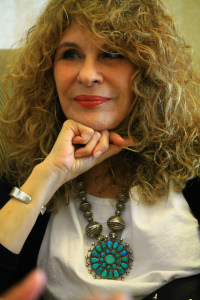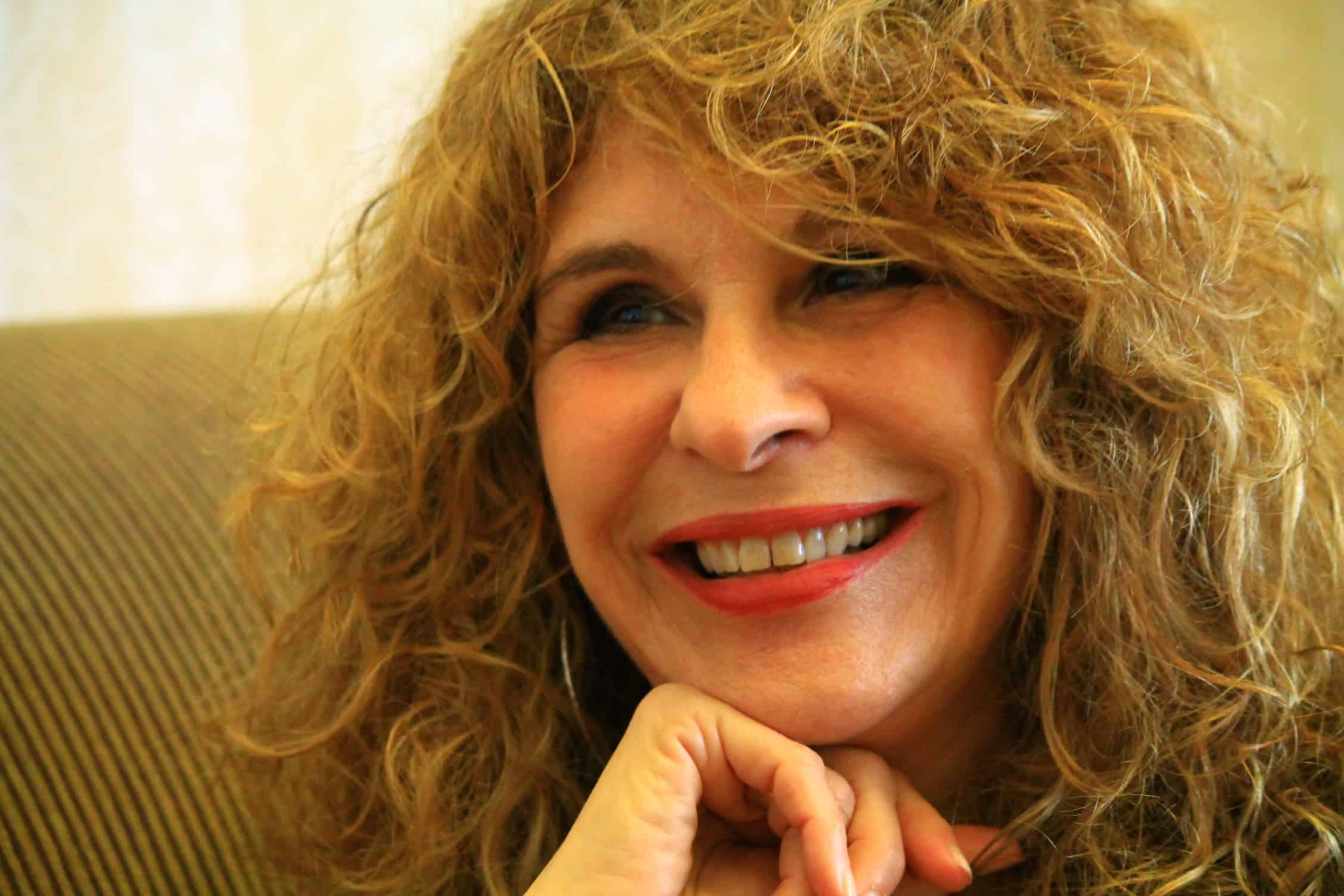Nicaraguan novelist and poet Gioconda Belli, born in Managua in 1948, wrote the poem “Yo fui una vez una muchacha risueña” (“I was once a cheerful girl”) two days after arriving in Costa Rica in 1976, where she lived in exile for three years. Twenty-five years old at the time and with two children, Belli fled – along with many other Sandinista militants – the repressive dictatorship of the Somozas before it was overthrown in 1979.
“I remember walking in that San José drizzle wondering what I was going to do,” Belli said, recalling her days living in Barrio Amón, in the center of the capital.
The author of “La mujer habitada” (1988), “Waslala” (1996) and “El país bajo mi piel, memorias de amor y de Guerra” (2001) revisited San José last week as a special guest of the International Book Fair.
This year Belli published a new novel, “El intenso calor de la luna,” which tells the story of a woman approaching her 50s who experiences a series of physical and emotional changes.
“This is the moment in which a woman can take charge of her life. She no longer must only be a mother and always give of herself, but she can now also think of herself. It’s another type of beauty – she has much experience and she has another type of sensuality. She begins to reevaluate her entire life and reinvent herself,” Belli said.
With an immense smile, her eyes like seeds, and her magical thick head of hair, Belli sat down with The Tico Times to discuss her return to Nicaragua after living many years in the United States.
Belli, who penned the poetry collections “Sobre la grama” (1972) and “Línea de fuego” (1978), also spoke of her country’s current political situation, and what it means for Nicaragua that Sandinismo has been replaced by Orteguismo.
Excerpts follow:
TT: You recently decided to permanently move back to Nicaragua. What has it been like going back?
GB: Well, I used to live half of the time in Nicaragua and the other half in the United States, so I never totally disconnected myself from Nicaragua. But I’ve always wanted to return. I like living in Nicaragua [more than in the U.S.]. It’s more comfortable in the United States; you have all the necessities, the lights never go out, you have water, and the Internet is fast. In Nicaragua, you’ll find small problems with those things. But you feel much more connected to the social situation. In the U.S., you can live completely isolated from social problems.
I feel more alive in Nicaragua. I participate much more in the social aspect. Right now, for example, I am president of the Nicaraguan chapter of Pen International. Plus, my most intimate friends from my entire life are there. Politics – one of my vices – are there, too, as are the history and the personalities.
What types of battles are you waging at Pen International?
Above all, Pen works to promote the freedom of expression around the world. At first it was a group of writers. Later, it expanded to include journalists. We work in several areas.

What kinds of censorship have occurred under this administration [of Nicaraguan President Daniel Ortega]?
There is a very sophisticated type of censorship going on, because although there is no open censorship of the press, the government controls the majority of the news media, either because they’ve directly bought them or because they don’t allow the presence of certain media who are critical of the administration to participate in the press conferences they give. The president also refuses to respond to journalists’ questions.
Daniel Ortega hasn’t given one single press conference in the entire time he’s been in power. He’s given two interviews – one to a Russian media outlet and another to Al-Jazeera. In other words, this government has absolutely been closed to the press. He doesn’t explain his actions, and there is this enormous secrecy. The only one who talks every day to the press is [First Lady] Rosario Murillo. Daniel speaks from podiums. He says whatever he feels like saying, but he never answers questions from the press.
What do you think of Rosario Murillo? Do you agree that her power is indefinable?
She’s very organized; she’s a very intelligent woman. She has a fanatical, messianic side, which I think gives her enormous energy. It’s almost an abnormal energy, and I think she has appropriated a power that no one gave to her, because we didn’t elect her. Nevertheless, she – together with Daniel Ortega – acts as if she’s co-president. So her power is very manipulative, because she’s used the Catholic religious beliefs of the people to convert herself into Mother Teresa of Calcutta, and she’s emphasized the most conservative values of the Nicaraguan people for her own personal objectives.
You’ve said that “neither homelands nor people are the same; the only things that are the same are problems.” What are those problems in Nicaragua today?
Poverty and a lack of democracy. The other very grave thing is that Canal for Nicaragua and the fact that they granted [the concession] to a Chinese citizen of whom very little is known; and it’s a concession that practically facilitates a Chinese enclave where Nicaragua will have little jurisdiction to intervene.
In exchange for what?
In exchange for $10 million a year. That concession was given without consulting the Nicaraguan people. A government that says “el pueblo presidente” doesn’t consult on something like a canal that’s going to break our country in half and that’s going to affect Lake Nicaragua, which is one of the most important water reserves in Nicaragua and Latin America. As a citizen, I’m very worried about the future.
How do you see the people of Nicaragua – do they demonstrate an apolitical attitude?
Yes. What people want is a better life, and after living through war we are in a situation of peace. There are important social programs because this government has a lot of money, thanks to the large economic support from Venezuela. That money isn’t distributed through the national budget; it’s administered directionally by Daniel Ortega. They use it to give things in the name of the Sandinista Front to create a mass of voters who they’ve convinced of their kindness through prebendary programs. We endured 16 years of neoliberal governments and now we have a populist government that is more concerned about poverty and the people who were forgotten during past governments, but at what cost? At the expense of a loss of liberty and democracy. To me, the price of social justice is not authoritarianism and the lack of liberty.
What’s the future look like to you? What are the future struggles?
Political reality always advances much more slowly than people’s will, their dreams and their utopias. But I don’t think one should become so disillusioned. This era is obviously more difficult than the era I lived in, because the lines have become blurred. Everything is gray. We had clearer options, or at least we believed we did. The situation now is much more complex. But we must shift the focus to the happiness of human beings.






